Educating for a Just Ecological Transition: Building Higher Educational Alliances in a Time of Climate Crisis
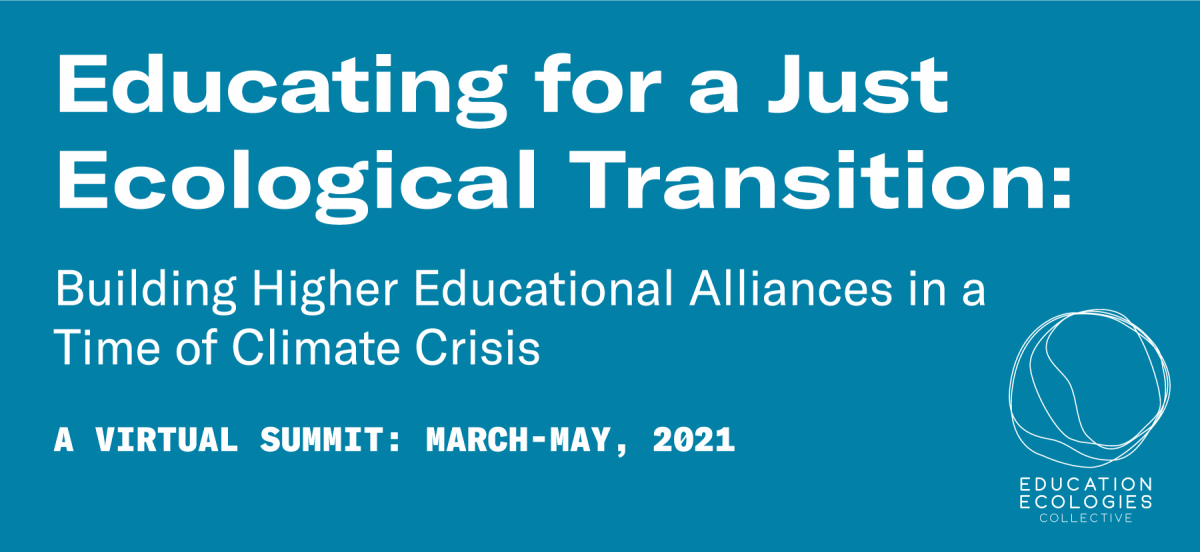
March-May, 2021: This virtual summit engages emerging responses to the climate crisis in higher education—with particular attention to the roles higher education institutions can play in building alliances with social movements, community organizations, artists, intellectuals, and informal educational structures.
A Virtual Summit: March-May, 2021
Haverford College
- Jump to:
- Schedule
- Watch
- Presenters
- Organizers
- Register to Attend
The virtual summit “Educating for a Just Ecological Transition: Building Higher Educational Alliances in a Time of Climate Crisis” engages emerging responses to the climate crisis in higher education—with particular attention to the roles higher education institutions can play in building alliances with social movements, community organizations, artists, intellectuals, and informal educational structures. How can advocacy around climate justice respond to broader questions about inequalities of power? How should institutions of higher education act on their responsibilities to address the climate crisis through curricula, infrastructure, and institutional action? How can higher education institutions learn from, partner with, and provide resources for community organizations and educational programs?
Guiding Questions:
- How should institutions of higher education act on their responsibilities to address the climate crisis through curricula and institutional action?
- How can advocacy around climate justice respond to broader questions about inequalities of power?
- How can higher education institutions learn from and provide resources for community partners and educational programs?
Goals:
Working with a broad range of activists, scholars, artists, and educators, we hope to:
- Build alliances between higher educational institutions and social movements, community organizations, artists, intellectuals, and informal educational structures.
- Compile best practices to assist institutions of higher education in acting on their responsibilities to address the climate crisis, cognizant of broader questions about inequalities of power.
- Create materials for communities, organizations and individuals to foster educational contexts responsive to cascading environmental crises.
Contact: Joshua Moses - jmoses [at] haverford.edu & Laura McGrane - lmcgrane [at] haverford.edu
Organized by Education Ecologies Collective. Sponsored by the Leaves of Grass Foundation, the John. B. Hurford ’60 Center for the Arts and Humanities, VCAM, and the Department of Environmental Studies at Haverford College.
Schedule
Ecological Transitions: Implications for Higher Education
Thursday, March 4, 2021 (Watch)
2:00-4:00 p.m. EST
From the Pandemic to white supremacy, to the climate crisis, to inequality and large-scale economic shifts, it is ever increasingly clear that we require not only new pedagogies but a radical rethinking of institutional forms in higher education. This session will introduce our seminar’s overall themes and consider the implications of cascading crises on the role of higher education and its relationships to wider society.
Presenters
- Matthew Derr, President, Sterling College
- Dr. Timothy Eatman, Dean of the Honors Living-Learning Community, Rutgers University - Newark
- Davydd Greenwood, Goldwin Smith Professor of Anthropology Emeritus, Cornell University
- Joan Naviyuk Kane, Poet & Visiting Lecturer on English, Harvard University
- Tsion Syoum '21, Haverford College
Experimental Structures for Higher Education: Learning from Alternative Models
Thursday, March 18, 2021(Watch)
2:00-4:00 p.m. EST
We are living in a time of tremendous innovation in the field of higher education. This conversation brings together activists, educators, students, artists, and entrepreneurs experimenting with new institutional forms. From evolving technologies that respond creatively to changing student needs, and better harness resources in the service of social and environmental justice, to place-based initiatives, contributors offer examples and visions for what higher education might respond to our historical moment--and emerging futures.
Presenters
- Adam Bush, Co-Founder and Provost, College Unbound
- Michelle Jones, Founder, President, and Chief Academic Officer, Wayfinding Academy
- Tommy Joshua, Founder and Directing Manager, North Philly Peace Park
- John Kuo Wei Tchen, Inaugural Clement A. Price Professor of Public History & Humanities; Director, Clement Price Institute on Ethnicity, Culture and the Modern Experience, Rutgers University - Newark
Remaking Pedagogy for the World that We Need
Thursday, April 1, 2021
2:00-4:00 p.m. EST
This conversation focuses on a range of pedagogies responding to environmental and other social upheavals. Contributors will discuss the genealogies of their practice and inspirations that inform their work, while considering the roles students, educators, activists and administrators have played to support creative and effective pedagogies both in and outside the academy.
Presenters
- Kim Fortun, Professor of Anthropology, University of California Irvine
- Marie Howe, Poet
- Kashema Hutchinson, FI Graduate Fellow and Peer Leadership Fellows Co-Director, The Futures Initiative
- Vandana Singh, Speculative Fiction Writer; Associate Professor and Chair, Department of Physics and Earth Science, Framingham University
Blurring Lines: Social Movements, Community Collaborations, and Arts
Thursday, April 15, 2021
2:00-4:00 p.m. EST
Presenters
- Tailinh Agoyo, Co-founder and Director, We Are the Seeds of CultureTrust
- Joanne Douglas, Watershed Interpretation Manager, Bartram’s Garden
- Billy Dufala, Co-Founder and Director of Residencies, RAIR
- Dylan Gauthier, Director, Elizabeth Foundation for the Arts Project Space
Global challenges including climate change, pandemic, and mass extinction challenge the conventional distinctions among institutions, social movements, and community organizations. In this session, participants discuss how we can transform higher education to better engage social movements, community-based organizations, and artists. .
Addressing Funding Models in Higher Ed Transformation
Thursday, April 29, 2021
2:00-4:00 p.m. EST
Presenters
- Julie Newman, Lecturer of Environmental Planning and Sustainability; Director, MIT Office of Sustainability
- David Ragland, Co-Executive Director and Co-Founder of the Truth Telling Project
- Matt Stinchcomb, Co-Founder, Lifeboats HV
- Joss Winn, Senior Lecturer / Programme Leader, School of Education, University of Lincoln
Any attempts to transform higher education must confront the challenges of funding. In the United States, funding for higher education comes primarily (and increasingly so) from private sources such as tuition, donations, or investment. The values of faculty, students, and communities beyond the academy frequently see themselves at odds with the requirements of fundraising. This session explores possibilities for alternative funding models that can open up creative possibilities and environ new relationships.
Imagining Futures: Educating for a Just Transition
Thursday, May 13, 2021
2:00-4:00 p.m. EST
Presenters
- Kazim Ali, Poet
- Dr. Thohahoken Michael Doxtater, Associate Professor, Indigenous Creative Practice, Schools of Creative Industries & Image Arts, Ryerson University
- Ruth Miller, Climate Justice Director, Native Movement
- Jacqueline Patterson, Director, NAACP Environmental and Climate Justice Program
- Victoria Stafford, Students of Color Environmental Collective, UC Berkeley
- Madeleine Wong, Students of Color Environmental Collective, UC Berkeley
How have we come to understand the role of higher education in addressing the climate crisis? In our concluding session, panelists and participants will reflect on key insights from previous discussions to consider next steps as we move forward. How do we move forward with what we have learned to transform higher education (and beyond) for the world that we need?
Watch
Presenters
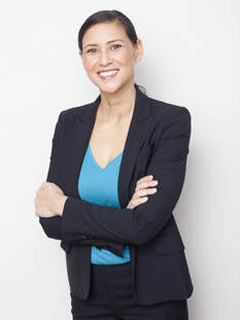
Tailinh Agoyo
Tailinh Agoyo is co-founder and director of We Are the Seeds of CultureTrust, a non-profit organization committed to uplifting and amplifying Indigenous voices through the arts. In its fourth year, We Are the Seeds has produced six celebrations of Indigenous arts and cultures and multiple creative and educational programs. She is the host of 'Rise and Thrive,' a radio show that honors the voices of Indigenous artists, performers, educators, and change-makers. She is also producer on the gorgeous and significant 'I Will Carry You' children' book. Tailinh is an artist. Her photography work is focused on capturing the vibrancy of Indigenous people today. The Warrior Project, a collection of photos of Native youth and their continuing commitment to environmental stewardship has received international attention and continues to be impactful. Tailinh has worked in film and television for over 30 years. She is mom to four wonderful children.
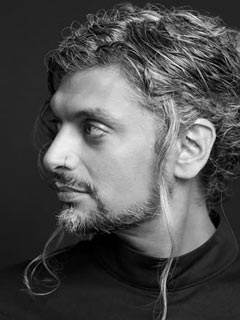
Kazim Ali
Kazim Ali was born in the United Kingdom and has lived transnationally in the United States, Canada, India, France, and the Middle East. His books encompass multiple genres, including the volumes of poetry Inquisition, Sky Ward, winner of the Ohioana Book Award in Poetry; The Far Mosque, winner of Alice James Books’ New England/New York Award; The Fortieth Day; All One’s Blue; and the cross-genre texts Bright Felon and Wind Instrument. His novels include the recently published The Secret Room: A String Quartet and among his books of essays are the hybrid memoir Silver Road: Essays, Maps & Calligraphies and Fasting for Ramadan: Notes from a Spiritual Practice. He is also an accomplished translator (of Marguerite Duras, Sohrab Sepehri, Ananda Devi, Mahmoud Chokrollahi and others) and an editor of several anthologies and books of criticism. After a career in public policy and organizing, Ali taught at various colleges and universities, including Oberlin College, Davidson College, St. Mary's College of California, and Naropa University. He is currently a Professor of Literature at the University of California, San Diego. His newest books are a volume of three long poems entitled The Voice of Sheila Chandra and a memoir of his Canadian childhood, Northern Light.
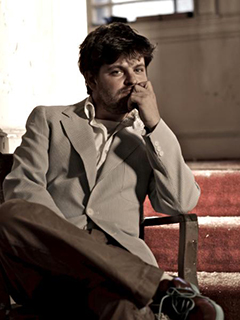
Adam Bush
Adam Bush is the co-founder and Provost of College Unbound; a degree completion college working both inside and outside carceral spaces of Rhode Island to ensure all adult learners are valued as scholar-practitioners, and have access to a Bachelor's degree pathway. Adam has always loved to see how things work and take them apart. His work and practice has always revolved around improvisation, learning, collective action, and imagination. Adam directed Imagining America's Publicly Active Graduate Education fellowship program from 2010-2012, and sat on Imagining America’s National Advisory Board (2010-2019). Adam sat on the Strategic Planning Committee of the Ashe Cultural Arts Center in New Orleans and is on the Steering Committee of the Great Colleges for the New Majority Network. Adam received his PhD from USC’s Department of American Studies and Ethnicity for his dissertation “Passing Notes in Class” which examined the origins of early jazz programs and the student and teacher-activist musicians that led to that institutionalization. He is the 2011 recipient of the K. Patricia Cross Future Leaders Award for Commitment to Academic and Civic Responsibility from the AAC&U, and the 2015 recipient of the John Saltmarsh Award for Emerging Leaders in Civic Engagement from the AASCU’s American Democracy Project. For more information about College Unbound please see the Chronicle of Higher Ed.
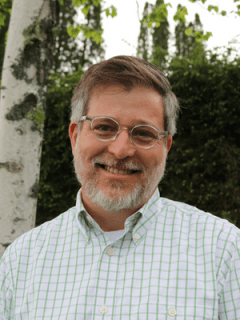
Matthew Derr
Matthew Derr is nationally recognized in higher education for his expertise in leading institutional change and for strengthening mission-based focus. In 2011, He was awarded a Council for Advancement and Support of Education Chief Executive of the Year Award. Derr led the effort to divest the Sterling endowment from fossil fuels, founded the Rian Fried Center for Sustainable Agriculture & Food Systems, and recently launched an effort with The Berry Center to expand the reach of farmer education. Prior to Sterling, President Derr served as Interim President of Antioch College, where, he developed a concept for a new curriculum focused on issues related to environmental stewardship, inspired by Sterling. Unusually for a college president, Derr also fulfills a role as a faculty member and teaches community organizing.
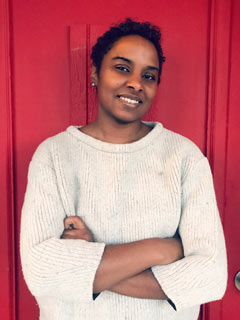
Joanne Douglas
Joanne Douglas is an environmental artist and educator working as the Watershed Interpretation Manager at Bartram’s Garden, where her responsibilities include developing the Denkyem River Guardians, a summer boating internship for Philadelphia high school students. Her work as a co-founding member of E.D.G.E (Encouraging Development of a Green Economy) and with Kosmologym, an arts and game design collective, all intersect with her artistic practice. Through mixed-media visuals and creative writing she investigates the relationships between humans, water, industry and policy. Joanne holds a B.A. in Political Science and a Masters of Environmental Studies from the University of Pennsylvania.
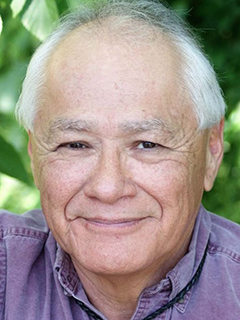
Thohahoken Michael Doxtater
Dr. Thohahoken Michael Doxtater is Associate Professor of Indigenous Creative Practice at the Schools of Creative Industries & Image Arts, Ryerson University. Doxtater (McMaster, B.A.; Cornell, M.S./PhD.) is a leading expert on organizational learning and organizational development. Recovering Indigenous Knowledge practices includes enacting the social foundations of governance, sustainable life-systems, and Indigenous languages. As a professional in dispute and conflict resolution he intervened during the Kanonstaten Reclamation Occupation (Caledonia, ON), the Red Hill Valley expressway occupation (Hamilton, ON), the Eagles Nest standoff (Brantford, ON), the Tutelo Heights forestry dispute (Brantford, ON), and Six Nations Against Pollution on-reserve. In 1990, he worked as the Oka Standoff representative for Chief Rastewenserontha of the Mohawk People. Professionally, Doxtater worked at the national level as a senior communication specialist for the Government of Canada, specifically the Department of Indian Affairs Headquarters and Ontario Region, Health Canada, the Canadian Government Expositions Centre (CGEC), the Royal Commission on Aboriginal Peoples (RCAP) and the Truth and Reconciliation Commission (TRC). He led teams that produced award-winning documentaries in Canada and the United States for PBS, TVOntario, National Film Board of Canada (NFB), and the Canadian Broadcasting Corporation (CBC). As a senior communication specialist, he has over 20-years experience as a producer in children's television, documentaries, drama, and long-form films in the Canadian media industry. His work has appeared on the Canadian Broadcasting Corporation, Radio Canada, and CKRZ 100.3 FM, and in the Montreal Gazette, Globe and Mail, the Toronto Star, Southam News, and TVOntario. He was part of the production team for “Where the Spirit Lives”, a Gemini Award winning drama on the frontier of the Indian Residential Schools apology era. His writing practice informs his role for teaching academic research and writing in college and university settings. Doxtater taught at Mohawk College, Niagara College, Cornell University, Wilfrid Laurier University, McGill University, and the University of Waterloo. Areas of research specialization include Action Research methods for strategic planning and developing learning organizations. Michael is an 8th generation descendent of Mohawk leader Joseph Brant.
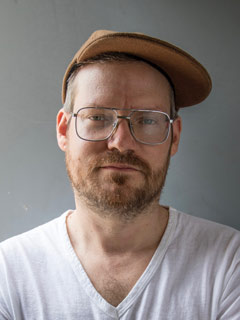
Billy Dufala
Billy Dufala is a Philadelphia based artist/musician engaged in a wide variety of creative discipline. He is a co-founder and Director of Residencies at RAIR, an artist residency located at Revolution Recovery, a construction and demolition waste recycling facility in northeast Philadelphia, RAIR’s mission is to challenge the perception of waste culture by providing a unique platform for artists at the intersection of art and industry. Billy is also known for his ongoing collaborative work with his brother Steven, as the Dufala Brothers. The brothers create drawings, prints, sculpture, performance, music and design. They are represented by Fliesher Ollman Gallery in Philadelphia and co-teach in the Sculpture Dept at the Pennsylvania Academy of the Fine Arts.
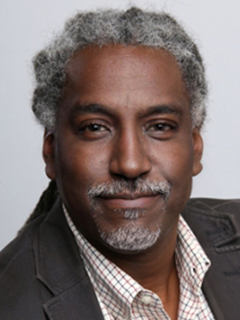
Timothy K. Eatman
Timothy K. Eatman, Ph.D., is the inaugural dean of the HLLC. Most recently, he held an appointment as Associate Professor of Higher Education in the School of Education at Syracuse University. From 2012 to 2017, Tim served as Faculty Co-Director of Imagining America: Artists and Scholars in Public Life (IA). He is co-author of Scholarship in Public: Knowledge Creation and Tenure Policy in the Engaged University, a seminal IA research report on faculty rewards and publicly engaged scholarship.
Tim’s research explores institutional policy and equity issues in higher education. He has published in such venues as the Journal of Educational Finance, Readings on Equal Education, Diversity and Democracy, and The Huffington Post, and has written several other book chapters and reports. He is co-editor of the Cambridge Handbook of Service Learning and Civic Engagement, released in 2017.
He serves in national roles including as a faculty member for Association of American Colleges and Universities (AAC&U) Summer Institutes on High Impact Practices and the Advisory Panel for the Carnegie Engagement Classification for Community Engagement.
Tim sits on the editorial board of University of Michigan Press – The New Public Scholarship book series, Urban Education, Diversity, and Democracy and reviews for several scholarly journals and publications. The recipient of the 2010 Early Career Research Award for the International Association for Research on Service-Learning and Community Engagement (IARSLCE) and now a member of the board, Tim often consults with Higher Education associations and institutions for collaborative research, keynotes, workshops and consultancies.
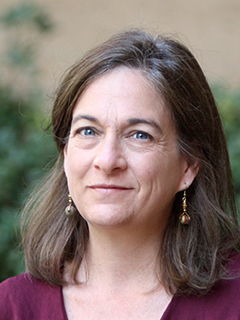
Kim Fortun
Kim Fortun is a cultural anthropologist with research and teaching focused on environmental risk and disaster, experimental ethnographic methods and research design, and the poetics and politics of data infrastructure.
Starting with an extended study of the 1984 Union Carbide chemical plant disaster in Bhopal, India (see Advocacy After Bhopal), her research has examined how people in different geographic and organizational contexts understand environmental problems, uneven distributions of environmental health risks, developments in the environmental health sciences, and factors that contribute to disaster vulnerability. A recurrent focus has been on ways data infrastructure subtends both environmental vulnerability and capacity to recognize and address such vulnerability. She has thus become increasingly invested in understanding and helping build “data capacity” (including technical infrastructure, public data resources, analytic and visualization capabilities, supporting educational programs and fields of expertise, and so on). Data capacity powerfully shapes how societies anticipate, characterize, and deal with collective problems. Given the tangles of problems contemporary societies face — and need to work on together — building interdisciplinary data capacity with global scope is a high priority. This will be far from straightforward, depending on inventive project designs linking researchers across disciplines, generations, and geographies; linking research to education at all levels; and building new connections between universities, schools, governments, international organizations, civil society groups and other social actors. These have become key aims of her work.
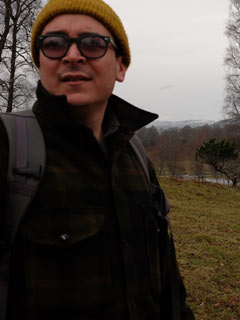
Dylan Gauthier
Working in a range of media including sound, performance, video, sculpture, architecture, and photography, Dylan Gauthier’s research-based and collaborative projects explore the intersections between ecology, architecture, landscape, and environmental justice. Gauthier received his MFA in Integrated Media Arts from Hunter College, CUNY (‘12), and has taught courses on emerging media in the Department of Film and Media Studies at Hunter College, and ecological art and design at Parsons/The New School, among others. Gauthier is a founder of the boat-building and publishing collective Mare Liberum (www.thefreeseas.org), and of the Sunview Luncheonette (www.thesunview.org), a co-op for art, politics, and communalism in Greenpoint, Brooklyn. He is co-organizer, with Mariel Villeré, of Freshkills Field R/D, an artist-research residency based at NYC's largest former landfill. He was recently named artist-in-residence at the New York City Urban Field Station. He is Director of the Elizabeth Foundation for the Arts Project Space, a 501c3 non-profit gallery devoted to experimental practices in the visual arts located in Times Square, NYC.
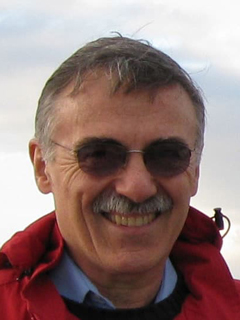
Davydd Greenwood
An anthropologist focused on the anthropology of organizations (manufacturing and service) with a special interest in higher education reform, Davydd Greenwood is an expert in the field of action research with a 50-year history of work in various parts of Spain on issues as diverse as rural exodus, ethnic conflict, industrial cooperatives, participatory community development, and the role of governmental institutions in shaping and exacerbating identity politics and conflicts. He has done more than 3 years of action research work with the cooperatives of Mondragón in the Spanish Basque Country. He has also participated in a variety of international PhD programs in action research, most notably in Norway as part of the Norwegian industrial democracy movement. He has also done participatory community development work in de-industrialized towns in Upstate New York and in Spain's La Mancha region and a variety of action research projects to reform higher education programs. He recently served on the faculty of the European Union project Universities in the Knowledge Economy directed by Professor Susan Wright of Aarhus University, Denmark. He a Corresponding Member of the Spanish Royal Academy of Moral and Political Sciences and a member of the Board of Directors of the Evolution institute.
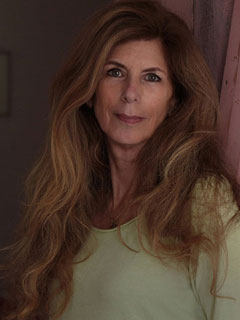
Marie Howe
Marie Howe is the author of four volumes of poetry: Magdalene: Poems (W.W. Norton, 2017); The Kingdom of Ordinary Time (W.W. Norton, 2009); What the Living Do (1997); and The Good Thief (1988). She is also the co-editor of a book of essays, In the Company of My Solitude: American Writing from the AIDS Pandemic (1994). Her poems have appeared in The New Yorker, The Atlantic, Poetry, Agni, Ploughshares, Harvard Review, and The Partisan Review, among others.
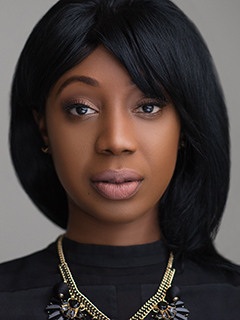
Kashema Hutchinson
Kashema Hutchinson is Ph.D. candidate in the Urban Education program at the Graduate Center (CUNY). She is also the Co-Director of the Peers Leadership Fellows Program. She has facilitated discussion groups with incarcerated populations in New York. Kashema creates and uses Hip Hop infographics to facilitate discussions on the role of women and history; philosophy; behavioral economics and; class and crime in traditional and non-traditional educative spaces. She is also a Co-Director of the Universal Hip Hop Museum’s Education Committee. In addition, Kashema is also an adjunct lecturer and teaches critical thinking to undergraduate and early college students. Her research interests include mattering and marginalization, the socialization of Black girls and women, zero-tolerance policies, mindfulness and Hip Hop pedagogy.
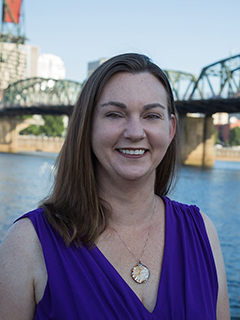
Michelle Jones
Michelle Jones is Founder, President, and Chief Academing Office of Wayfinding Academy. She is doing her life's work right now, which is exhilarating and terrifying. Her purpose in life is to help others figure out what they want to do with their lives and start doing it. Five years ago, she gathered a group of like-minded friends and colleagues around a vision of what a revolution in higher education could look like. After years of volunteering with groups and non-profits to organize for social impact, (SuperThank, TEDxMtHood, World Domination Summit) Michelle took the leap and Wayfinding Academy was born. We are still learning as we grow, but we are definitely seeing some ripple effects of change in higher education. When not ruffling the feathers of traditional higher education, Michelle can be found walking the Camino de Santiago with fellow Wayfinders (this summer will be her seventh time!) or relaxing at her tiny home in Portland, Oregon.
If you’d like to learn a little more about Michelle, the higher education revolution, or tiny homes please visit www.MichelleDJones.org
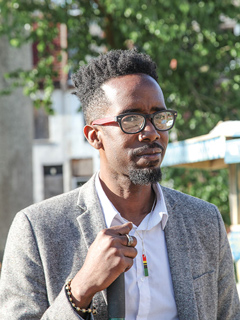
Tommy Joshua
Tommy Joshua is a urban outdoorsman, grassroots community organizer and radical city planner. In 2012 he lead the establishment of the North Philly Peace Park, a charitable urban ecology campus in an effort to address hunger and deep poverty in North Philadelphia. He currently lives in North Philadelphia, where he was born and raised and is a passionate advocate for the “Peace Town Plan” an ethical redevelopment project which seeks to radically transform and empower Philadelphia’s impoverished communities through the combined power of design, education, art and ecology.
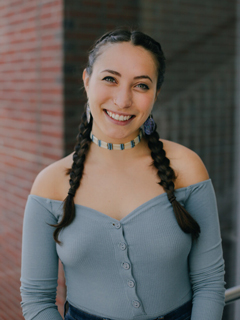
Ruth Miller
Ruth is a Dena'ina Athabaskan and Ashkenazi Russian Jewish woman, raised in Anchorage, Alaska. She is a member of the Curyung Tribe, and also has roots in Bristol Bay, where her family descended downriver after leaving the Lake Iliamna region. She is a recent graduate from Brown University, built on occupied Wampanoag and Narragansett lands, and received a BA in Critical Development Studies with a focus on Indigenous resistance and liberation. She has worked many years towards Indigenous rights advocacy and climate justice in Alaska, as well as in Rhode Island and the south of Chile. She centers themes of wellness and community care, and is thinking a lot about growth and regeneration and imagination in our activism work. Ruth also does International Indigenized climate justice work with the United Nations Association and SustainUS. Most of all, she loves singing as her Grandma Ruth did, practicing traditional beadwork with her mother late at night, slowly discovering her Dena'ina language, and building radical communities of love!
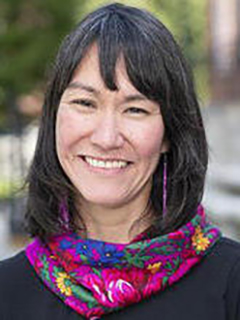
Joan Naviyuk Kane
Joan Naviyuk Kane is Inupiaq with family from King Island (Ugiuvak) and Mary’s Igloo, Alaska and was a 2019-2020 Hilles Bush Fellow at the Radcliffe Institute for Advanced Study. Her publications include the essay collection A Few Lines in the Manifest (2018), and poetry books and chapbooks The Cormorant Hunter’s Wife (2009), Hyperboreal (2013), The Straits (2015), Milk Black Carbon (2017), Sublingual (2018), and Another Bright Departure (2019). She has been the recipient of the Whiting Writer’s Award, the Donald Hall Prize in Poetry, the American Book Award, the Alaska Literary Award, the United States Artists Foundation Creative Vision Award, a Guggenheim Fellowship in Poetry, and fellowships and residencies from the Rasmuson Foundation, the Native Arts and Cultures Foundation, the School for Advanced Research, the Aninstantia Foundation, the Hermitage Artist Retreat and the Lannan Foundation. She has been a finalist for the PEN USA Literary Award, the Poetry Foundation’s Ruth Lilly Fellowship, and the Dorset Prize. She was founding core faculty in creative nonfiction and poetry in the graduate creative writing program at the Institute of American Indian Arts in Santa Fe, New Mexico and also serves as a lecturer in the department of Race, Colonialism and Diaspora at Tufts University, where she teaches Contemporary Indigenous Literature and Culture. Her work has recently appeared in Yale Review, Salamander, and When the Light of the World Was Subdued, Our Songs Came Through: A Norton Anthology of Native Nations Poetry.
Photo Credit: Tony Rindaldo
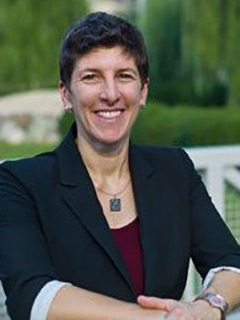
Julie Newman
Dr. Julie Newman joined MIT as the Institute’s first Director of Sustainability in the summer of 2013. She has worked in the field of sustainable development and campus sustainability for twenty years. Her research has focused on the intersection between decision-making processes and organizational behavior in institutionalizing sustainability into higher education.
In 2004, Julie was recruited to be the founding Director of the Office of Sustainability for Yale University. At Yale, Julie held a lecturer appointment with the Yale School of Forestry and Environmental Studies where she taught an undergraduate course entitled – Sustainability: From theory to practice in institutions. Julie came to Yale from the University of New Hampshire, Office of Sustainability Programs (OSP) where she assisted with the development of the program since its inception in 1997. Prior to her work with the OSP she worked for University Leaders for a Sustainable Future (ULSF). In 2004 Julie co-founded the Northeast Campus Sustainability Consortium, to advance education and action for sustainable development on university campuses in the northeast and maritime region.
Julie lectures and consults for universities both nationally and internationally, participates on a variety of boards and advisory committees and has contributed to a series of edited books and peer reviewed journals. Julie holds a BS in Natural Resource Policy and Management from the University of Michigan; an MS in Environmental Policy and Biology from Tufts University; and a Ph.D. in Natural Resources and Environmental Studies from the University of New Hampshire.
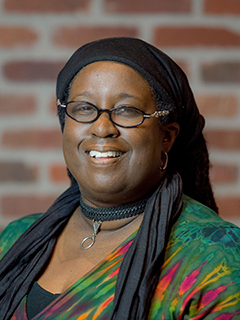
Jacqueline Patterson
Jacqueline Patterson is the Director of the NAACP Environmental and Climate Justice Program. Since 2007 Patterson has served as coordinator & co-founder of Women of Color United. Jacqui Patterson has worked as a researcher, program manager, coordinator, advocate and activist working on women‘s rights, violence against women, HIV&AIDS, racial justice, economic justice, and environmental and climate justice. Patterson served as a Senior Women’s Rights Policy Analyst for ActionAid where she integrated a women’s rights lens for the issues of food rights, macroeconomics, and climate change as well as the intersection of violence against women and HIV&AIDS. Previously, she served as Assistant Vice-President of HIV/AIDS Programs for IMA World Health providing management and technical assistance to medical facilities and programs in 23 countries in Africa and the Caribbean. Patterson served as the Outreach Project Associate for the Center on Budget and Policy Priorities, and Research Coordinator for Johns Hopkins University. She also served as a U.S. Peace Corps Volunteer in Jamaica, West Indies.
Patterson’s publications/articles include: ”Jobs vs Health: An Unnecessary Dilemma”, “Climate Change is a Civil Rights Issue”, “Gulf Oil Drilling Disaster: Gendered Layers of Impact”, “Disasters, Climate Change Uproot Women of Color”; “Coal Blooded; Putting Profits Before People”; “Just Energy Policies: Reducing Pollution, Creating Jobs”: “And the People Shall Lead: Centralizing Frontline Community Leadership in the Movement Towards a Sustainable Planet”; and book chapter, “Equity in Disasters: Civil and Human Rights Challenges in the Context of Emergency Events” in the book Building Community Resilience Post-Disaster.
Patterson holds a master’s degree in social work from the University of Maryland and a master’s degree in public health from Johns Hopkins University. She currently serves on the International Committee of the US Social Forum, the Steering Committee for Interfaith Moral Action on Climate, Advisory Board for Center for Earth Ethics as well as on the Boards of Directors for the Institute of the Black World, Center for Story Based Strategy and the US Climate Action Network.
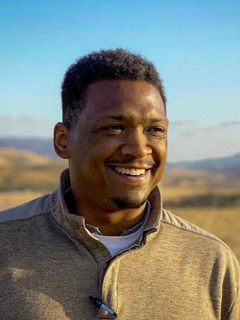
David Ragland
David Ragland is Co-Executive Director and Co-Founder of the Truth Telling Project . Dr. Ragland is an educator, thought leader, human rights, racial justice and anti-war advocate. He was recently inducted into the MLK Collegium of Scholars at Morehouse College. David also served as the Sr. Bayard Rustin Fellow at the Fellowship of Reconciliation.
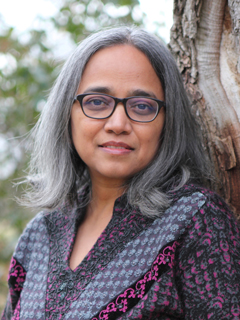
Vandana Singh
Vandana Singh was born and raised in India and currently lives in the Boston area, where she is a professor of physics at Framingham State University, and a science fiction writer. Although her Ph.D. is in particle physics, in recent years she has been working on the transdisciplinary scholarship of climate change, focusing on innovative pedagogies. She has collaborated with the Center for Science and the Imagination three times, twice on climate change–related projects. Her first collaboration (a story for Project Hieroglyph) led to the start of her academic work in the area, resulting in a case study of Arctic climate change as part of a program award from the American Association of Colleges and Universities, for which she traveled to the Alaskan North Shore in 2014. She was also a participant in a re-enactment of “The Dare,” as part of the Year Without a Winter Project, and has contributed a story to the upcoming anthology (forthcoming from Columbia University Press in 2018). She has been an invited panelist for the National Academy of Sciences working group on interdisciplinarity in STEM, and has taught in and/or co-led summer workshops on climate change for middle and high school teachers.
Vandana’s short fiction has been widely published to critical acclaim, and many of her stories have been reprinted in Year’s Best collections. Her North American debut is a second short story collection, Ambiguity Machines and Other Stories (Small Beer Press) that was No. 1 on Publisher’s Weekly’s Top Ten in Science Fiction when it came out in February 2018, and earned praise from Wired, the Washington Post, and the Seattle Times, among others. Locus Magazine’s Gary K. Wolfe refers to her as “one of the most compelling and original voices in recent SF.”
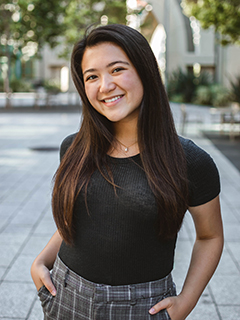
Victoria Stafford
Victoria Stafford (she/her) is a fourth-year undergraduate at UC Berkeley studying Business Administration and Society & Environment (concentration in US Environmental Policy). As the Vice President of the Haas Business School Association, she has worked to provide opportunities for students to learn about sustainable career paths, understand unsustainable systems of production and consumption in the status quo, and hold corporate and civic decision-makers accountable for their roles in perpetuating environmental injustice. Outside of this, Victoria does work in workforce development, environmental policy, and economic mobility and opportunity and intends to pursue a career in the social sector. In her free time, she enjoys community gardening, writing Yelp reviews, and reading the Modern Love section of The New York Times.
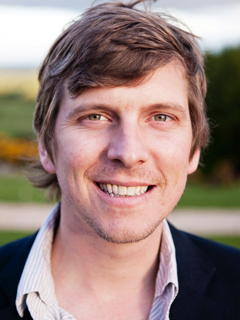
Matt Stinchcomb
Matt Stinchcomb is the co-founder of Lifeboats HV, an initiative of the New World Foundation that provides support to local projects and towns that are fostering social and ecological repair and reconnection in the Hudson Valley. With money, time, and connections, Lifeboats HV, and their network of thinking partners, donors, and service providers, offers strategically-placed resources to local communities who are working to repair natural systems, mend the civic fabric, and usher in a more resilient and self-reliant future.
Prior to this, Stinchcomb founded and led the Good Work Institute- A non profit organization that exists to cultivate, connect, support, and illuminate a network of people and initiatives working towards Just Transition in the Hudson Valley. Additionally, he is a co-founder of Place Corps, an educational program dedicated to cultivating a call to know, love, and serve our places.
Before working in the non-profit sector, Matt was the VP, Values and Impact at Etsy.com. In that role he oversaw the stewardship of the company’s mission, and worked to give all employees the means and the desire to maximize the benefit their work has on people and the planet.
Stinchcomb serves on the board of directors for the Schumacher Center for New Economics (Chair) and the Hawthorne Valley Association (Treasurer), and the Good Work Institute (Chair). He lives in Gallatin, NY with his wife, three children, and a very fast dog.
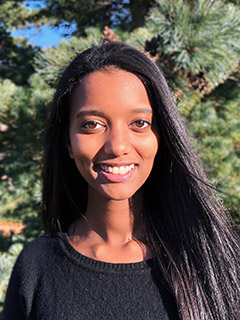
Tsion Syoum
Tsion Syoum '21 is a senior at Haverford College, majoring in Environmental Studies with a concentration in Peace Justice and Human Rights. In 2014, she started a non-profit to build sustainable sources of water in Eritrea. Since its establishment, she has raised more than $45,000. She is passionate about protecting and preserving our environment and its natural resources. In the near future, she plans to pursue a master’s in environmental policy and regulation to explore new ways to manage water and water pollution through policymaking. At Haverford, Tsion is a member of the Black Student League and works for the Admissions Office.
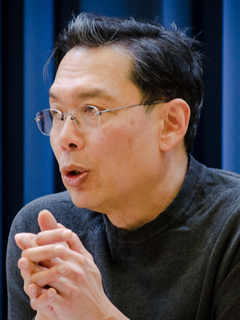
John Kuo Wei Tchen
Jack (John Kuo Wei) Tchen is a historian, curator, writer, and dumpster diver devoted to anti-racist, anti-colonialist democratic participatory storytelling, scholarship, and opening up archives, museums, organizations, and classroom spaces to the stories and realities of those excluded and deemed “unfit” in master narratives. Professor Tchen has been honored to be the Inaugural Clement A Price Professor of Public History & Humanities at Rutgers University – Newark and Director of the Clement Price Institute on Ethnicity, Culture & the Modern Experience, since Fall 2018.
Most recently, he is engaged with global warming crisis, eco justice, and the deep history of the region, founding New York Newark Public History Project (of The Public History Project), funded by the Ford Foundation. And he has been appointed onto the New York City Panel on Climate Change dealing with the 31-county regional estuarial impacts we are all facing. He has been supporting three Munsee Lunaape communities with their Homeland efforts reconstructing their language, maps, place names, and stories. The PHP is reframing the history of the estuarial region starting with the triple foundational histories of dispossession, extractivism, and enslavement (work emerging from serving as a Commissioner on the NYC Mayor’s Commission on Monuments.) His ongoing series of work on eugenics in the New York City region surfaces how patrician elites fashioned a tested, measured, sorted tiered hierarchic system of “fit” European-descended “Nordics” on top, and the rankings of the great majority of “unfit” below--resulting in the Immigration Act of 1924 and practices of sterilization and incarceration all still impacting US political culture to this day. He is working with faculty from the University College London in their 2020-2021 work on coming to terms with eugenics in London and NYC – for the 100th commemoration of The Second International Eugenics Conference held at the American Museum of Natural History in 1921, NYC.
He served as the senior historian for a New-York Historical Society exhibition on the impact of Chinese Exclusion Laws on the formation of the US and also senior advisor for the two-hour “American Experience” PBS documentary on the “Chinese Exclusion Act.” His most recent book - Yellow Peril: An Archive of Anti-Asian Fear (2014) is a critical archival study of images, excerpts and essays on the history and contemporary impact of paranoia and xenophobia. In 1996, he founded the A/P/A (Asian/Pacific /American) Studies Program and Institute, and research collections, New York University, NYU where he worked closely with Jack G. Shaheen and brought in his research collection on anti-Arab representations in television and Hollywood. In 1980, he co-founded the Museum of Chinese in America.
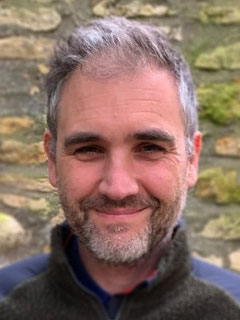
Joss Winn
Joss Winn is a Senior Lecturer in the School of Education, responsible for the School's post-graduate research programmes. Prior to joining the University of Lincoln in 2007, he worked in London for Amnesty International and prior to that, the British Film Institute. Over the past 20 years, he has taught at all levels of education, from a Kindergarten and middle school in Japan, to undergraduate and doctoral programmes in the USA and UK, as well as informal adult education.
His current research looks at craft education, with a specific focus on the teaching and learning of guitar-makers in the UK through the routes of autodidacticism, apprenticeships and vocational education. Previously, his research focused on co-operative education, workplace democracy and alternative forms of higher education.
His work contributes to a number of sub-disciplines and contemporary research themes in the social sciences. These include the sociology of work; the sociology of education; vocational education and training; the co-operative movement, and the work of musical instrument making.
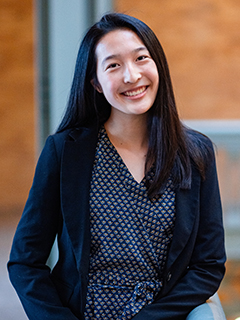
Madeleine Wong
Madeleine Wong (she/her) is a third year pursuing simultaneous degrees in Business Administration at Haas and Environmental Economics and Policy at the College of Natural Resources. She currently serves on the CRB Student Advisory Board and is interested in learning about how businesses can truly be sustainable in a capitalistic society by exploring system level change. Outside of her formal education, she is continuing to work on her personal journey of understanding her individual impact and intersectional environmentalism. At Berkeley, she serves in the Haas undergraduate student government working in DEI, enjoys walking through the Redwoods in Oakland, and is currently reading Hope in the Dark by Rebecca Solnit.
Organizers
Education Ecologies Collective seeks to transform contemporary education, stewarding inclusive climate justice for an equitable world.
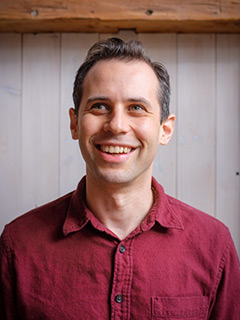
Tal Beery
Tal Beery is a New York-based artist and educator. He is co-founder of Eco Practicum, an artist-run school for ecological justice and founding faculty at School of Apocalypse, examining the connections between creative practice and notions of survival. Beery is also a core member of Occupy Museums, a collective fighting the economic and social injustices propagated by institutions of art and culture. His curatorial research considers the relationships between art and epochal change. Beery’s written work and interviews have appeared in numerous publications and his personal and collaborative works have been exhibited in museums and galleries in the US and Europe, including the 2012 Berlin Biennale, Brooklyn Museum, and the 2017 Whitney Biennial.
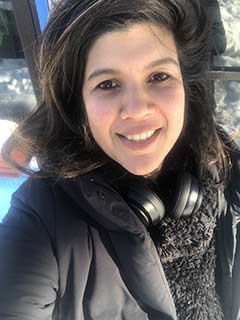
Suparna Choudhury
Trained originally as a neuroscientist, Suparna Choudhury has worked as a researcher in London, Paris, Berlin and Montreal developing interdisciplinary approaches to examine the implications of the new brain sciences for health and society. She is a founder of the research program of Critical Neuroscience, which brings to bear perspectives of science studies and medical anthropology to examine how neuroscientists construct their objects of inquiry, and how research findings are transformed into popular knowledge and public policy. Ongoing projects include investigations of socioeconomic and neighbourhood contexts on brain development; uses of the neuroscience of the "adolescent brain" in education, law and psychiatry; subjective experiences of young people in the mental health system; interpretations of data from brain science and epigenetics about maternal mental health; and the politics of open science. She is Assistant Professor and Co-Director of the Culture, Mind & Brain Program at the Division of Social & Transcultural Psychiatry, McGill University.
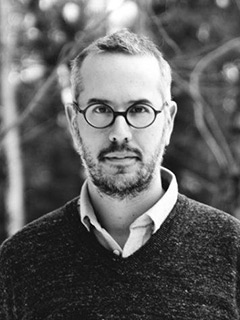
Cédric Jamet
A graduate from the Applied Human Sciences Department in Concordia (M.A. Human Systems Interventions 2016), Cédric has spent the last 10 years supporting individuals, teams, organizations and communities to invent creative ways to think, do and live together in alignment with their collective values. In this spirit, he has designed and hosted dozens of inclusive strategic conversations and participatory processes with a wide diversity of partners, including public institutions, ONGs, foundations, businesses and activist groups.
His teaching and practicing interests include community development, sustainability, and social justice. On a personal level, he is profoundly engaged towards a vision of communities, organizations and social movements as spaces where one can learn and practice the magical and somewhat tricky art of becoming better humans.
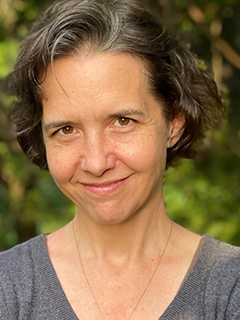
Laura McGrane
Laura McGrane is Director of Visual Culture Arts and Media (VCAM) and Associate Professor of English at Haverford College. Her work in liberal arts as interdisciplinary practice explores alliances between arts, technology, sciences and community engagement. She oversaw the creation of the VCAM space and design, and runs its grant programming with the Mellon Foundation and other funders in arts, visual studies, technology and community practice.
Her teaching explores print culture and digital media, integrating theoretical work on interface, surveillance, and inclusivity into scholarship on the history of the book.
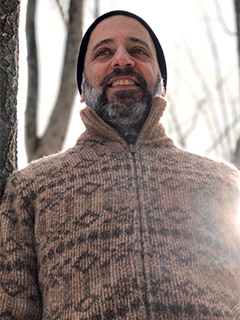
Joshua Moses
Joshua’s trans-disciplinary research focuses on disaster and complex socio-ecological change. His forthcoming book, Anxious Experts: Spiritual Care and Disaster Response from 9/11-the Climate Crisis (UPenn Press) brings together his work on religious and mental health response to the attacks of September 11th and Hurricane Katrina, centering on the formation of “spiritual disaster expertise” following the attacks of September 11th and the aftermath of Hurricane Katrina—as well as more recent climate crisis-related related activities. Joshua has worked with Nunatsiavut Inuit communities in northern Labrador on inequality, dispossession, community wellbeing, migration, and identity in the context of recent land claim settlements and large-scale resource extraction. He has also conducted research in the Northwest Territories on migration, housing, and homelessness, and has worked with youth in Alaska. As a member of Education Ecologies Collective, Joshua’s work has increasingly focused on the response of education to the climate crisis and the ways we are (or are not) preparing each other for futures that society itself struggles to imagine.
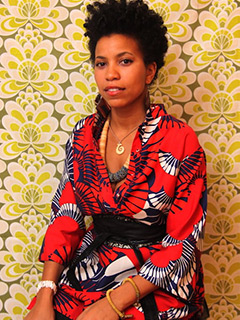
Li Sumpter
Li Sumpter, Ph.D. is a mythologist, educator and social practice artist who employs mythic literacy and eco-conscious design as modes of creative resistance and community empowerment. Her academic work and socially engaged art projects synergize world building and afrofuturism, environmental justice and land sovereignty as a praxis of freedom. Li is Founder/Creative Director of MythMedia Studios, an art and design studio that employs myth, media and liberation technologies to address existential concerns and environmental issues.
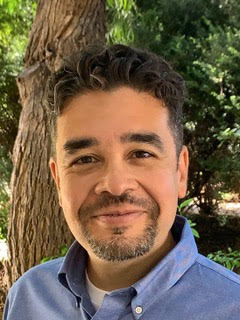
Nathan D. Woods
Nathan D. Woods is an anthropologist and information scientist working at the intersection of research and practice on issues related to the design of knowledge institutions and expert work, the science-policy-practice interface, and the dissemination and use of scholarship, scientific information and expert advice. He is currently completing a book manuscript on the history and purpose of U.S. higher education in the climate crisis.



